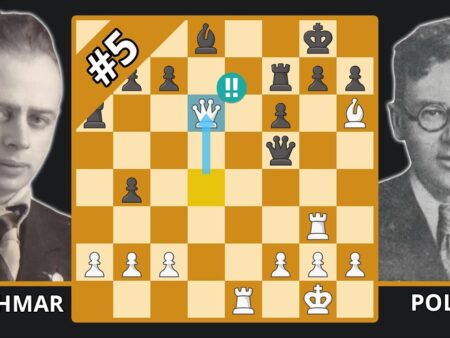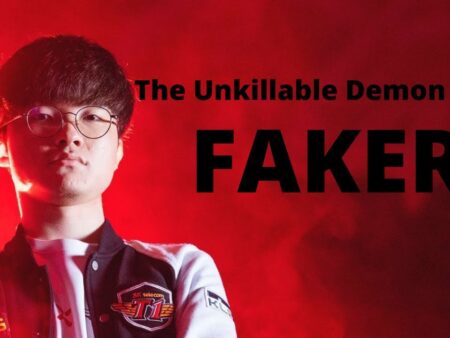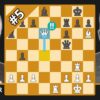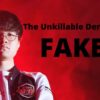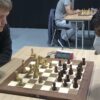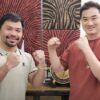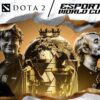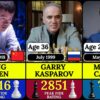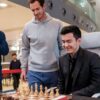For months, the basketball world held its breath, waiting for a definitive statement from Joel Embiid. Would he play? Would he not? What, if anything, would he say about a season that had once shimmered with championship promise, only to crumble under the relentless weight of injuries and public scrutiny?
The scene is intimate: Embiid, sprawled across a spacious couch in his piano room, a man of immense stature momentarily dwarfed by his own thoughts. His attire, pinstriped shorts and a camp collar shirt, hints at a casual comfort that belies the internal tempest. His son, Arthur, playfully peeks from the hallway, oblivious to the gravitas of the moment. Upstairs, his wife, Anne de Paula, busies herself with birthday preparations, a touch of domestic normalcy in a world often consumed by professional demands. It`s late March, just days before another knee surgery that will cast a long shadow over his illustrious career.
Once, interviews were a playground for Embiid, a stage for his dry wit and candid confessions. During two years sidelined by foot surgeries before his NBA debut, he became a media darling, a master of self-deprecation and surprising narratives. But the past year has changed him. Now, he`s wary, distracted, and seemingly bored. The guard is up. His silence is a language in itself, a careful calibration of what to reveal, and to whom.
The Fortress of Self: Trust and Trauma
Embiid has every reason to shut down. His family is secure for generations, his parents taken care of, his presence an inspiration in Cameroon. From his lavish stone colonial mansion in the Philadelphia suburbs, adorned with monogrammed hand towels in its eleven bathrooms, what possibly could he complain about?
“I care about how I`m going to be remembered when it comes to basketball, but not as a man,” Embiid states, his voice so quiet it demands an inward lean to catch his words. “As a man, you can`t tell me nothing.”
This is the private Joel Embiid, known by precious few. His inner circle, fiercely protective, sees him as he sees himself: besieged. Gaining his trust, one friend remarks, is “intoxicating,” like penetrating “a force field that nobody gets to be in.”
The question hangs in the air: “Who do you trust?” Seconds tick by, thick with silence. “I`ve never been the one to have a lot of friends,” he finally offers, “And even then, with the ones that I consider close, I never try to go deep into anything.”
His upbringing, a quiet family from West and Central Africa, resonates deeply. “You could never really open up about anything.” Love was present, but not the overt, affectionate kind. It was a love that bred resilience, a need to defend his roots, yet also a drive to forge a different path for his own children.
Perhaps it`s this shared background, or the therapy he began last fall, or simply the basketball void he’s endured. Six months of public discourse, of “career obituaries” ranking him, the league MVP in 2023, as the 84th best player or 66th all-time. Maybe now, he simply needs to talk.
The weight of his past is ever-present. The death of his 13-year-old brother, Arthur, hit by a truck in 2014, remains a raw wound. Phone calls still send a tremor of panic, a fear that someone else is gone. This trauma contributes to his notorious aversion to communication; notifications off, thousands of unread messages, replies that can take months. “I just can`t do it,” he admits, revealing a screen with over 9,500 unread texts and 875 missed calls. “Everybody,” he deadpans, “is annoyed.”
The Joker and the Giant: Public Persona vs. Private Self
“I like to troll a lot,” Embiid says with a hint of a smile, when asked about being jokingly called an `a–hole.` He pauses, then concedes, “At times, I can be an a–hole.” It`s a classic Embiid deflection, a playful yet revealing peek behind the curtain of his often-misunderstood persona.
His on-court brilliance, when healthy, is undeniable. A “one-man revolution” of hybrid plays, seamlessly shifting from low-post bully to mid-range artist to deadly shooter. It`s not luck, as he once sarcastically claimed to a reporter after a slow start, but painstaking work and an almost supernatural basketball IQ. His ability to anticipate and react, like whirling past Zach LaVine for a contested block that no coach would ever teach, speaks to a unique, untrainable genius. When he plays at his best, there is no one quite like him.
Yet, the jokes were also shelters, places to hide himself. As a freshman at Kansas, he`d pretend his English wasn`t good enough, or spin tales of killing a lion in the Cameroonian jungle. People believed him, his college coach, Bill Self, recalls. “I never knew him to be much of a talker as far as expressing true feelings.” He was known for being clever, not for being truly known.
This careful facade cracked during a galling media cycle. A Philadelphia Inquirer column, chastising his professionalism and fitness, dared to invoke his deceased brother and son. Embiid`s furious response, “I`ve done way too much for this f—ing city to be treated like this,” culminated in a physical altercation and a three-game suspension. Months later, the anger still simmers. “I would still do it,” he asserts, defiant even against potential multi-million dollar fines. The guilt of leaving his brother in Cameroon, a decision that still haunts him, fuels his protectiveness.
Even within his team, trust has been a thorny issue. A leaked locker room meeting, where friend Tyrese Maxey reportedly confronted him about tardiness and morale, cemented his vow never to fully engage in team meetings again. “Once you cross that—you can`t expect me to be part of a team meeting again. That`s just not going to happen.” The betrayer`s identity is known, yet his silence on the matter is another layer of his complex persona.
A Trajectory of Distrust: From Cameroon to MVP
The fairy tale narrative of Joel Embiid — discovered at 16, a rapid ascent, the No. 3 pick — obscures a period of profound rupture. His move to the U.S. at 16, leaving his family, was a jarring experience. Thrown into a prep school, then a host family where guns were openly displayed, a stark contrast to his military father`s household. “I was kind of scared,” he admits, explaining his preference for isolation and locked doors. “I don`t think anybody understands my point of view.”
He struggled, lying to his parents about his well-being, sinking into morose silences. He didn`t connect with teammates, didn`t believe in his own talent. “If basketball don`t work, I`ll just go to a school for four years and find a job,” he told a teammate, who witnessed his dominance in practice. Even as a projected No. 1 pick, he wanted to stay in Kansas, feeling undeserving. His life was accelerating at a pace he couldn`t comprehend, propelled by a story he didn`t believe, supplied by people he didn`t trust.
When the 76ers drafted him third overall in 2014, ESPN`s initial broadcast showed him staring blankly, “confused,” as one commentator observed. While a later, more joyful reaction was played, in some ways, he`s never fully caught up to that initial delay. Two years passed with him sidelined by foot injuries. Rumors of laziness and poor nutrition spread. When he finally debuted, another meniscus tear cut his season short. His dance at a Meek Mill concert, shirtless, became “perception-wise” a line crossed. Later, he was recorded eating a burger courtside. The narrative solidified: Joel`s lazy. He doesn`t care. The irony, of course, is that such a journey, from novice to MVP, demands anything but laziness.
The MVP`s Defense: Dispelling the Narratives
“I still see a lot of people bring it up, talking about the silly stuff I used to do as a kid, just my second, my third year in the league,” Embiid reflects. “I started playing basketball at 16. You would not be in this position by being lazy.” His voice grows urgent. “Go through the narratives.”
The accusations are familiar: Joel makes excuses. “It`s not making excuses. When you`re hurt every year and everybody knows it, it`s the truth.” He believes that a healthy Embiid is a championship contender, a belief validated by his regular season dominance.
Joel cares too much about individual awards. “If you are in a position to win an MVP, I don`t care who you are, you`re going after it.” For a player who never envisioned such offensive prowess, the MVP was an unexpected validation.
Joel is talented but doesn`t have the extra intangible stuff it takes to lead. “No one is a winner until they`ve done it. I`m fine with that narrative because I haven`t done it. Charles Barkley, great player, right? But he never won. That doesn`t mean they weren`t great.” He acknowledges growth, a shift from his early years of being “nowhere to be found.” Yet, the root of his isolation persists: “I always taught myself to not trust anybody.”
His early relationship with the 76ers was notoriously rocky. Confined to the Ritz-Carlton, grieving his brother, he played video games, ate poorly, and struggled with his foot`s healing. When the team dismissed his pain as laziness, he snapped. “I had to start being an a–hole,” he recounts, ignoring rehab and communication, accruing over $300,000 in fines. “They`re not listening to me, and I`m not going to keep putting my body at risk.” It was a desperate act of self-preservation against an organization that seemed to doubt his pain.
The “Process” era`s initial rehabilitation efforts were, to put it mildly, understaffed. An intern overseeing a future MVP`s recovery is a detail that now invites a chuckle, albeit a dark one. It wasn`t until the hiring of health expert David Martin that a more rigorous approach was implemented. Martin, tasked with rebuilding the franchise`s most prized asset, quickly realized the unique challenge. Embiid, observing silently, applied a personal litmus test. He even, somewhat ironically, set “money traps” around his apartment to test the trustworthiness of his visitors. “If something is missing, I`m going to know exactly who took it,” he says, with a chilling matter-of-factness. This was his way of discerning loyalty, a vital commodity in his world.
Martin, along with physical therapist Kim Caspare, became a protective core, an “organization within the organization.” Caspare, seeing fear where others saw laziness, understood he needed a “family around him.” They adapted to his needs, worked around his communication style, often covering for his tardiness. The team`s confidential survey, revealing “nobody believed in Joel,” spurred them to take him out of the country for treatment, a drastic measure to heal him in a less “hostile” environment. It was a tightrope walk between coddling and career-saving, a testament to Embiid`s unique needs and the complex nature of talent itself.
The Present and the Promise: A Legacy Undecided
The 2024-25 season saw the 76ers limping to a 24-58 record, their worst since Embiid`s debut. Coach Nick Nurse and President of Basketball Operations Daryl Morey found themselves constantly explaining away injuries and dealing with frustrated fans. Embiid`s pre-game warmups became a silent opera of frustration, missed shots met with existential despair, falls met with viral clips. His Christmas Day performance against Boston, a spectacle of “exuberant spite,” perfectly captured his complex emotional landscape on the court. His moods, a seismic force, could shift the weather of an entire game, a whole season.
Yet, before his January 2024 knee injury at Golden State, Embiid was playing some of the greatest basketball ever witnessed. Averaging 35.3 points in 34 minutes, he was on pace to be only the second player in history to score more than a point a minute, tallying streaks reminiscent of Wilt Chamberlain and Kareem Abdul-Jabbar. A 70-point, 18-rebound outburst against the Spurs was a masterclass.
His return for the playoffs, hobbled but determined, saw flashes of brilliance before his body betrayed him again. Collapsing in Game 1 against the Knicks, his face frozen in partial paralysis during a postgame interview, it was a brutal reminder of the physical toll. He was defiant, refusing to speak French to a reporter, a subtle jab at the external pressures and narratives.
Now, Embiid is in the “most important offseason” of his life, rebuilding his body once more. The end of his elite-level career is not hysterical to ponder. If this is indeed the final chapter, then what has Joel Embiid been?
He has been misunderstood, and not entirely blameless in that. He has been dominant, then hobbled or absent, and resented for it. He has transformed from a media-savvy joker to a wary, introspective giant. His journey, from a hesitant prodigy to a reluctant MVP, is a testament to extraordinary talent battling immense personal and physical challenges. His legacy remains unwritten, hinged not just on championships, but on the quiet, unseen battles fought within himself.
